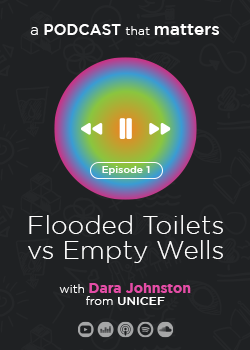
New delivery methods and business/operating models to green the last mile and optimise road transport
Details
Description
Call updates
Oct 21, 2021 1:12:04 PM
On 19 October 2021, a total of 142 full proposals were submitted in response to the following 2021 topics: HORIZON-CL5-2021-D6-01-08: 23 proposals
Jun 24, 2021 12:00:04 AM
The submission session is now available for: HORIZON-CL5-2021-D6-01-08(HORIZON-IA)
New delivery methods and business/operating models to green the last mile and optimise road transport
TOPIC ID: HORIZON-CL5-2021-D6-01-08
Programme: Horizon Europe Framework Programme (HORIZON)
Call: Safe, Resilient Transport and Smart Mobility services for passengers and goods (HORIZON-CL5-2021-D6-01)
Type of action: HORIZON-IA HORIZON Innovation Actions
Type of MGA: HORIZON Action Grant Budget-Based [HORIZON-AG]
Deadline model: single-stage
Opening date: 24 June 2021
Deadline date: 19 October 2021 17:00:00 Brussels time
Topic description
ExpectedOutcome:
Project results are expected to contribute to all of the following expected outcomes:
- Take up and upscaling of innovative, best practice and replicable safe and sustainable last mile solutions in the living labs[1] involved in the proposals, while facilitating the common lesson drawing and learning at European level, in order to contribute to the priorities of the European Green Deal, which stresses that ‘’transport should become drastically less polluting, especially in cities.”[2]
- Develop logistics hubs and micro consolidation centres. During the assessment process of possible locations, cooperation with local authorities is required. Locations should be checked against the sustainable mobility and logistics plans of the concerning city.
- Test and deploy new delivery methods (such as e-cargo bikes) in at least 3 cities/project.
- Optimise urban space, loads and reduce empty miles through dynamic routing, load policies, multi/single-brand parcel lockers and boxes.
- Demonstration of cost-efficient, zero-emission modes of last mile transport for urban and peri-urban deliveries in the living labs involved in the projects (as listed in the scope part below).
- Increased quality and liveability of urban and metropolitan areas by reducing road risk, congestion, air and noise pollution.
- Improve knowledge of user needs, habits and preferences in terms of deliveries by collecting and sharing information amongst public authorities and private companies aiming at clustering users while respecting GPDR.
Scope:
The large scale introduction and application of cargo bikes, in urban and peri-urban areas has shown to be a game changer for cities: the image of cycling improves; general levels of cycling increase (both for freight and passengers); urban space is used more efficiently; air quality, noise and safety levels as well as quality of life improve. However, this innovative solution is present in only a few cities and at best in the starting phase in other European cities. Its full potential has not been achieved in any European city.
Projects should address both methodological and technical/vehicle aspects to help optimising last mile deliveries, where the benefits and how it can be replicated across several cities.
Demonstration of cleaner modes for last mile transport vehicles such as, electric assisted cycles (2/3/4 wheels), bikes and cargo bikes in combination with the testing of innovative tools such as dynamic e-routing, load policies, multi/single-brand parcel lockers and boxes, micro consolidation centres and zero emission freight in the urban context to measure their effects on optimisation (reducing empty miles), efficiency, and congestion reduction should be considered. Results could also contribute to better delivery technologies transforming the last mile such as camera-based object tracking, precise location brought by enhanced EU satellite navigation (GNSS) services, application of AI technologies and CCAM solutions to delivery services and advanced analysis based on driver apps. It is recommended the establishment of energy savings objectives (e.g. electricity) regarding micro-consolidation centres in relation to other traditional strategies.
Actions should focus on piloting cooperation with private logistics operators, local businesses and establish new models for addressing governance and management of logistics operations in urban and peri-urban areas. Projects should achieve cost-efficient and scale up potential and deployment of innovative and sustainable urban people and goods mobility solutions enabled by better governance and regulations, including procurement or white-label schemes as an efficient tool for achieving these goals.
A thorough evaluation, with a clear baseline in each city, should provide qualitative and quantitative information on the results of the local solutions implemented. The effectiveness of the proposed measures in achieving local policy objectives should be evaluated and the possible barriers to their broad take up and deployment identified, together with recommendations on how to overcome them. This should be accompanied by mechanisms for common lesson drawing and learning, within the project, between the projects funded under this topic and through the CIVITAS Initiative.
Proposals may include preparatory, take up and replication actions, research activities, as well as tools to support local planning and policy making.
A demonstrated contribution to the implementation of the cities’ Sustainable Urban Mobility Plans, without forgetting higher scales planning scope, is expected. If not already in place, the city can develop a Sustainable Urban Logistics Plan or other appropriate planning instrument to manage urban freight and logistics.
Funding for major infrastructure works is not covered by this action. Proposals should plan for an active collaboration within the CIVITAS initiative.
Social innovations should be considered, notably as new tools, ideas and methods leading to active citizen engagement and as drivers of social change, social ownership, and new social practices.
This topic requires the effective contribution of SSH disciplines and the involvement of SSH experts, institutions as well as the inclusion of relevant SSH expertise, in order to produce meaningful and significant effects enhancing the societal impact of the related research activities
Cross-cutting Priorities:
Socio-economic science and humanities
Societal Engagement
Social Innovation
[1]At least three living lab cities should be included as demonstrators of the innovative solutions and at least three follower cities. At least one of the living labs and follower cities should be located in areas experiencing rapid economic and social change.
[2]https://eur-lex.europa.eu/resource.html?uri=cellar:b828d165-1c22-11ea-8c1f-01aa75ed71a1.0002.02/DOC_1&format=PDF



